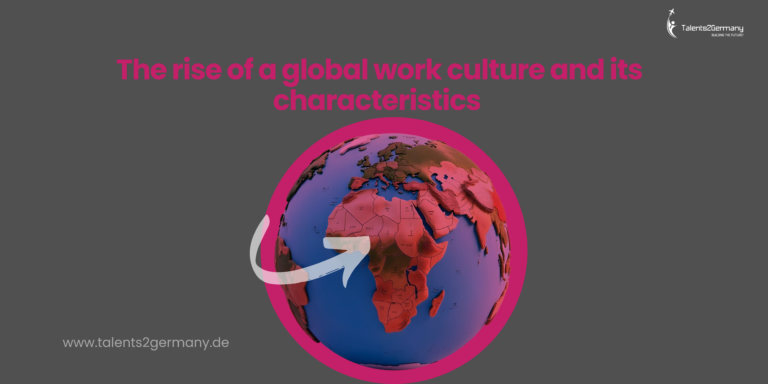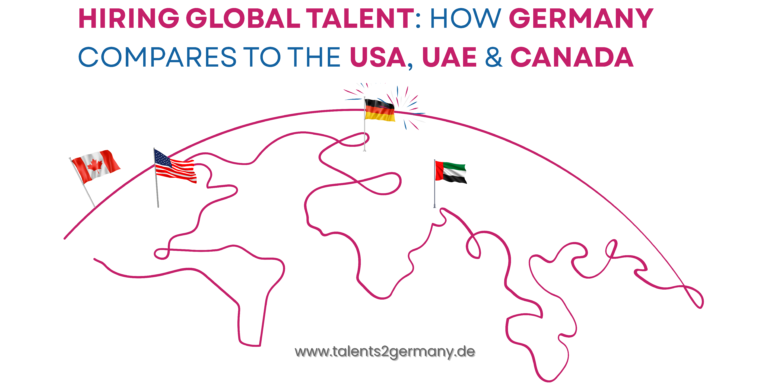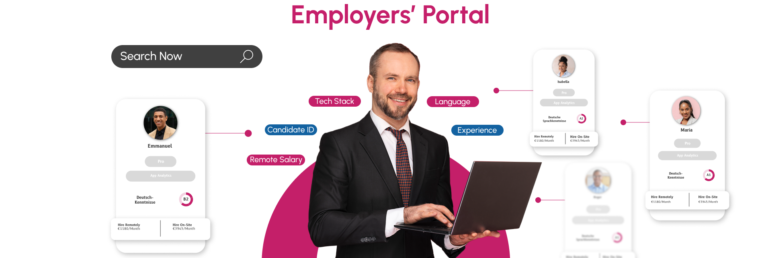
As digital transformation accelerates and demographics shift, agencies: web-agencies, design agencies, marketing agencies in Germany and Europe are being pushed to reinvent not only what they do, but how they do it.
The traditional model—centralized teams, centralized structures, expensive overhead, is breaking under the weight of new global realities.
But what if the future of creative and tech agencies isn’t about doing more in-house, but about coordinating more intelligently?
As the CEO of Talents2Germany, I reflect on a vision we began 13 years ago. The idea, once captured in an early video, is now coming to life in our work today.

Germany has long been a hub of innovation, technological excellence, and industrial leadership in Europe. However, as the global economy faces increasing uncertainty, German startups are encountering a range of new challenges that threaten their growth and sustainability. From sluggish economic growth and rising operational costs to talent shortages and strict labor laws, these obstacles make it difficult for early-stage companies to scale effectively.

While Silicon Valley has long relied on global talent, many German startups remain heavily focused on the domestic labor market—limiting their growth potential.
In the face of a shrinking talent pool, growing international competition, and mounting pressure to innovate, one thing is clear: international hiring is no longer optional—it’s a necessity.
Yet despite the urgent need, implementation remains difficult. Complex visa procedures, lengthy hiring processes, and limited access to global talent pools pose significant challenges for many companies.
This article explores why attracting international professionals is becoming a key success factor for German startups—and how Talents2Germany can help integrate global talent efficiently and in full legal compliance.

Germany, a long-standing leader in engineering and industrial technology, is now facing a significant IT talent shortage. With an aging workforce, rising salary demands, and a limited supply of highly skilled developers, businesses are struggling to recruit the expertise necessary for emerging fields such as artificial intelligence, cloud computing, and fintech.

In today’s remote and multicultural workplaces, creating genuine connection can be a challenge—but also a powerful opportunity. At Talents2Germany, we’ve found that one of the simplest ways to build team spirit across borders is also one of the most universal: music.

Global work culture isn’t a trend; it’s a new reality. For European startups, scaling means hiring beyond borders and rethinking old work models. This article breaks down the key traits of global teams and why adapting fast matters. From async workflows to cross-border HR, here’s how to stay competitive worldwide.

In today’s global job market, the competition for skilled professionals goes far beyond borders. Countries like Germany, the USA, UAE, and Canada are all vying to attract top international talent—but which offers the best environment for long-term success? This article compares key factors such as visa stability, cost of living, career growth, and residency options to help employers understand why Germany is becoming a top choice for hiring non-EU professionals.

In football, top-tier clubs—referred to as "First League" teams—have the courage and foresight to scout talent worldwide. Similarly, businesses in competitive industries understand that recruiting internationally is a crucial strategy for maintaining their edge.

Talents2Germany has just launched a tech-talent portal, where now employers can pre-search global tech talents. This platform provides direct access to more than 72,000+ candidates from 50+ countries all across Asia, Africa, South America and Eastern Europe. The unique value…









